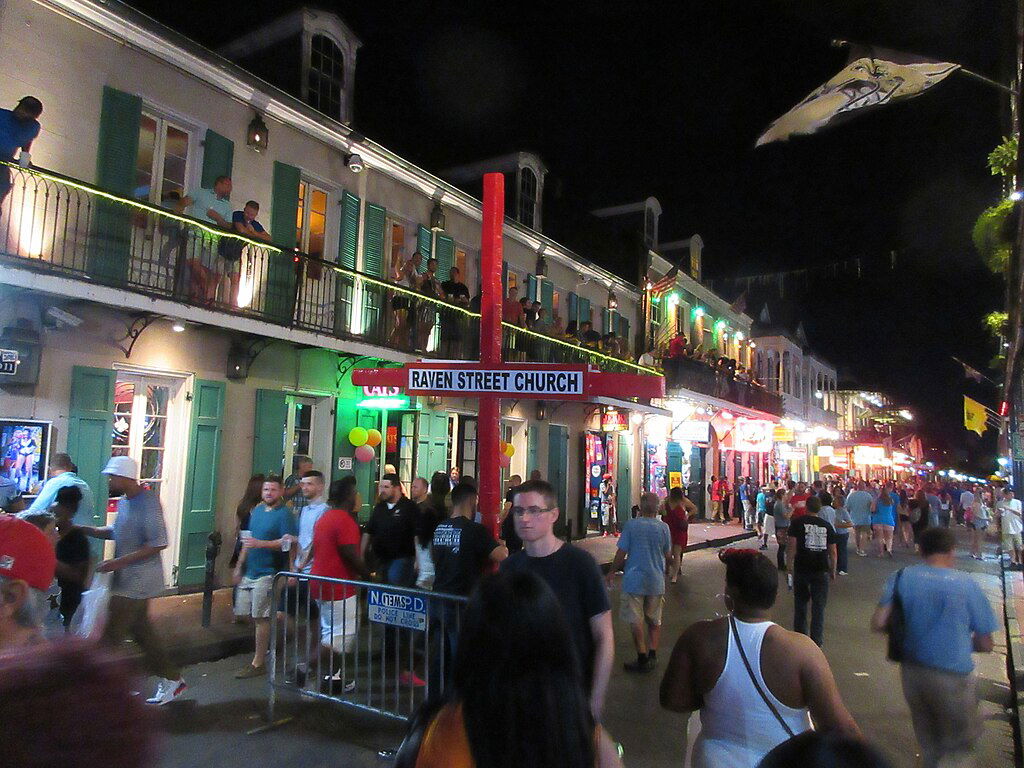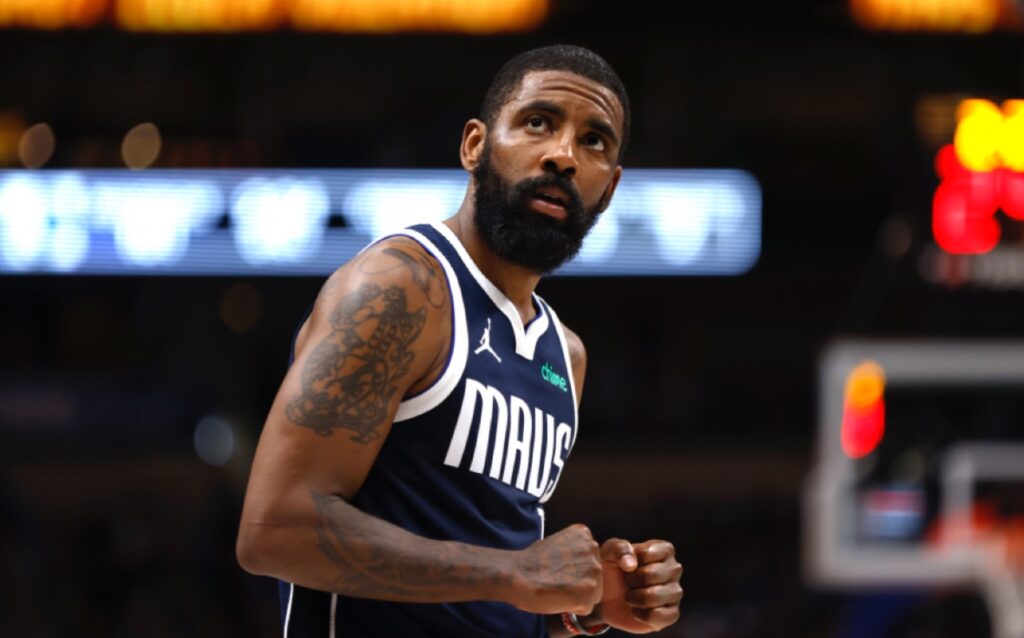
Coordinating a program of “Southern Stories” dedicated to the 20th anniversary of Hurricane Katrina was more than an obligatory tribute. To Kelley Girod, the director of new works at the Apollo Theater, bringing together a group of artists from the Gulf to present at the renowned Black institution up North was urgent.
It was also a chance to finally work on art about the life-changing disaster with other artists who felt it in the same way she did. Girod is Louisiana-born and bred, and had just started a master’s program in New York when the storm hit.
Girod and Stephanie McKee-Anderson, the executive artistic director at Junebug Productions in New Orleans, met through the National Black Theater’s catalyst program a decade ago. Junebug Productions, founded by John O’Neal of the Student Nonviolent Coordinating Committee’s Free Southern Theater, became an artistic home for McKee-Anderson after Hurricane Katrina. Both Girod and McKee-Anderson were on a mission to uplift their community of southern Black artists.
“It just felt like, over the years, the gap between Northern and Southern artistic institutions was just getting bigger and bigger,” Girod said. “I don’t know if that was a result of what’s happening politically that’s also separating us as well. They have so many great artists down [South], and we just don’t seem to be in conversation with each other.”
It would take time before they had an opportunity to platform this style of southern storytelling. What came of the two minds meeting at the New Orleans landmark Cafe Du Monde last summer was “Echoes of the Storm: 20 Years After Katrina,” a series of short plays directed by Kamilah Forbes, all giving a glimpse into the aftermath of the hurricane. In one, “Braking Waters,” by Sha’Condria Icon Sibley, a woman decides whether to bring a child into the world where she no longer has close family or loved ones. In another called “Boogie,” by Brian Egland, two young brothers in temporary housing struggle to accept that they no longer have a home to go back to.
The plays cover themes of trauma, displacement, and loss experienced by the residents of New Orleans. But it’s also about the wisdom New Orleanians forcefully acquired from surviving disaster. In the opening monologue “Saltwoman,” written by McKee-Anderson, a spirit that represents Black women’s survival across generations explains how the scattered New Orleans diaspora will continue to pass their knowledge when the next natural disaster strikes Texas, California, or any new place they’ve learned to call home in the last 20 years.
Girod and McKee-Anderson spoke to TheGrio about how the collaboration came to life. The conversation has been edited and condensed for clarity.
TheGrio: What kind of conversations were artists in New Orleans having after Hurricane Katrina?
Stephanie McKee-Anderson: I think immediately afterwards, everybody kind of was sitting with… Their “what” and their “why.” It was a strange, odd, lonely, lonely time. John O’Neal, Junebug, Carlton Turner, and Alternate ROOTS created a space for us. In many ways, touring with them and them being my artistic family saved me. It gave me something to look forward to.
We did this tour with this piece called “Uprooted: The Katrina Project.” It allowed us to find our people in every space that we went to. I remember we were in Knoxville, Tennessee. And we went to an apartment complex where they told us there was a lot of folk who had been displaced from New Orleans there. One of the artists played the trumpet. He just started playing his trumpet outside. And people just started flocking, and coming down and following us. I remember I was sitting there and listening to people’s stories. People really needed to talk.
Kelley Girod: When Katrina happened, I had nobody. I was in total isolation. I just started a master’s program at Columbia, and I couldn’t physically get down to Louisiana to deal with my family. Everything was happening over the phone. Doing “[Echoes”] with Junebug and the Apollo was the first time I was able to reflect on that with other artists.
We wanted the stories to be told by the people who experienced it. We did not want it to be some DEI checkbox kind of thing. We wanted to stand in this moment and say this is important. This happened to us. We have to uplift this every year, not just every 20 years.
TG: You have been making art since Katrina about the storm and its effects. Was it difficult to commemorate the 20th anniversary when you’re still in this reality?
SMA: I think it’s a matter of, what is the song that our communities are singing right now? What is the hymn that our communities most need in this moment? So with that, you have to constantly think about where you are, where you were, and what the future looks like. And that can be challenging, especially while you’re in it and doing the work.
And so, as we approached the anniversary, I was fine, or at least I thought I was, until I saw behaviors that reminded me of, like, the ugliness of what that brings out in people. A lack of anything makes people go into survival mode. Sometimes it’s about individualism versus the collective.
We have a lot of people who have coped, but haven’t really healed. I think a lot of people in our city are still in the process of healing. You can’t heal from something when you constantly got people re-injuring the wounds. In terms of progress with the city, it feels like we just keep getting re-injured. These wounds keep getting opened up again. It’s hard, but I’m on my own healing journey.
TG: I wanted to ask about opening with “Saltwoman.” The other plays are conversations, and this is a monologue. What was the reasoning behind setting the stage with that play?
KG: The piece itself has different movements within it, and it felt that it was prepping us to go through all the things that we were gonna experience, that the other plays led us through. It touched on everything. It touched on the past, the present, the future. I personally felt like it gave us a glimpse into the range of every emotion that you feel after going through something like this. We were gonna feel each one of those through the other plays.
Stephanie set the stage for us with that piece. I also loved that the poetry of it felt very ritual. The poetry was grounding us, was preparing us to take a journey.
TG: Did any of the plays surprise you in terms of reading them versus how they were performed?
SMA: The one about Boogie. That tugged on my heartstrings in a way I just did not expect. I wasn’t sure, but it’s a way that the words kind of jump off the page. Like, when you see somebody actually reading them, you’re like, “Oof.” But the way that Brian writes is beautiful. It hits you right in the hard space. He found a voice for young people who had had no voice during that time, and couldn’t really fully articulate. So it was really nice to see and hear that perspective.
KG: I was surprised by “Boogie.” On paper, it was simple. Not simple in that it’s simplistic writing. It was just these two brothers. To hear it in the space, and the world starts to come together through the words, and you see there were kids in this. Kids who were displaced. It was so heartbreaking. He’s watching the TV so he can see his dog that is probably dead. How do you, at 14 years old, deal with the gravity of that, and the gravity of being away from home?
I was also surprised by Lori Parquet’s piece, “Pre-K,” which was very specific to the place, the bounce music, and the different dances. I really give the actors Reggie [Barnes], Fedna [Jaquet], and Kim [Sykes] so much credit, because they spent the time that they had in between rehearsals listening to that music to try to get it as right as they possibly could.
TG: Was it important to bring humor into the project?
SMA: I’mma give a John O’Neal quote. He said, “The heavier the subject, the lighter the touch.” But even for ourselves, we gotta laugh at ourselves to keep from crying. I thought Kelley did a phenomenal job of how she curated where each piece went. Because the audience that comes along for the ride, you’re carrying the weight.
KG: Humor is so important to Louisianians. I grew up laughing about stuff that you probably shouldn’t be laughing at. But it’s the way that we handle all the stuff that we’ve gone through. I think, to some extent, it is a way to take the power out of the thing that you may be facing that feels impossible. It almost brings it down to a level that’s digestible.





